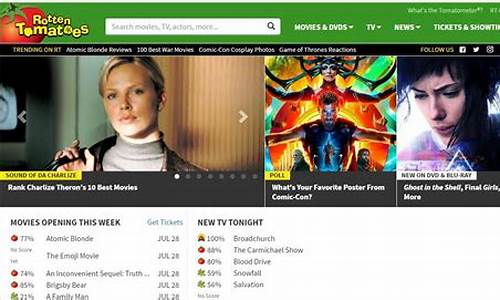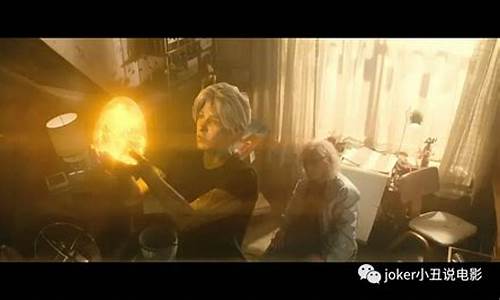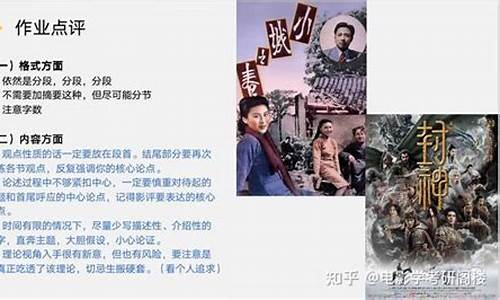英文影评怎么写_英文影评平台哪个好
1.求英文原版**影评,最好加上人物介绍,我的英文水平很差劲希望能简单些,我要的是你们自己写的哦!
2.英文经典影视影评怎么写?应该用什么时态?
3.英文影评到底该用怎样的时态
4.求经典美国**影评,最好是英文版的,中文也行,一个**最好有多个影评 发776900490,非常感谢了

'The Hours' is about three stories.The first,set in 1923,is about Virginia Woolf (Nicole Kidman) writing the novel Mrs.Dalloway.The second is set in 1951 and is about Laura (Julianne Moore) reading Mrs.Dalloway.The third is set in 2001 and is about Clarissa (Meryl Streep) living the same life as Mrs.Dalloway.We switch between these stories in one way,but in another way it is one big story told in different times.
This is a great movie with great stars.Ed Harris has a very small role in the movie but still manages to impress.Nicole Kidman won an Oscar for her performance,and whiles she was great the one that truly deserved it was Juliana Moore.It was truly an amazing job she did in the movie and definitely her best since "Boogie Nights".The other noticeable thing in the movie is the amazing score by Philip Glass.He mainly uses pianos and strings in the movie and uses them well.There are no brass instruments,any percussion or vocals,just the piano and the violins playing throughout.really love despite how sad the movie is his music is kinda dreamlike and heartfelt,definitely a surprise and one of the best parts of the movie.
If you're looking for a movie with stellar acting,a great story and wonderful music then look no further than this.It might make you a bit depressed though.Just be sure to watch a comedy after that then you'll feel better.
求英文原版**影评,最好加上人物介绍,我的英文水平很差劲希望能简单些,我要的是你们自己写的哦!
个人意见哦!**名称,主角及扮演者,故事梗概,获得奖项(可略),自己心得、蕴含哲理~本人觉得就是这样啦~~希望能帮到你!
例如:《刺杀》(Valkyrie:历史) 2009 (115 min) 英文影评:
What becomes of a movie star when the career hits a hiccup and the lustre starts to fade? If the movie star is smart, they go back to basics, reconnecting with the fire of their formative years. What drove them back then? What first made them strive for greatness? "When I was a kid I always wanted to kill Hitler," Tom Cruise revealed recently. "I hated that guy and all he stood for."
Valkyrie, then, is not just the latest Tom Cruise action thriller. It is the fruition of a dream; a boyhood fantasy writ large; a Hollywood blockbuster that provides an opportunity that was denied him in life. Inevitably he bungles it.
Bryan Singer's picture casts Cruise as Claus von Stauffenberg, the Wehrmacht colonel who spearheaded the 20 July 1944 plot to save the fatherland. Wounded in battle and sporting a natty eye-patch, von Stauffenberg has grown sick of war. He wants to "show the world that not all Germans are like Hitler". He hates that guy and all he stands for.
The obvious sticking point here is that (spoiler!) von Stauffenberg did not actually kill Hitler. The plot failed and the conspirators were executed. Played as a tragedy, or a stark study of failed ambitions, this might not have been a problem. Except that Singer opts to frame Valkyrie as a high-concept wartime suspense thriller, inviting us to suspend our disbelief and go along for the ride.
The 1944 plot was at least fiendishly planned and generally well executed. Singer's, by contrast, seems flawed and foolhardy from the start.
But what of Singer's co-conspirator? Valkyrie paints von Stauffenberg as the archetypal "good German", a model of elegant disenchantment. And yet Cruise, for all his skills as a performer, does not do disenchantment. For all the anguished moments of doubt, the constant stares into the mirror, his von Stauffenberg is essentially Top Gun with an eye-patch.
The film's curious melange of dialects only underscores this quality. Von Stauffenberg's cohorts are played by British actors (Bill Nighy, Terence Stamp, Kenneth Branagh) who deliver their lines in English accents. The villainous Nazi is portrayed by German actor Thomas Kretschmann who speaks English in a German accent. And then - standing separate and apart - is Cruise himself, intoning his lines in pureblood American. He might as well have been dropped in from an Allied plane; a gung-ho Hollywood hero sent in to clean up a very European mess. He couldn't manage it as a kid, and he can't quite do it now. Hitler one; Tom Cruise nil.
对应中文翻译:
什么成为一个**明星,当职业生涯击呃逆和光泽开始褪色?如果是聪明的**明星,他们回归本源,重新与消防的形成时期。是什么驱使他们回呢?第一次是什么使他们争取的伟大? “当我还是孩子的我一直想杀, ”汤姆克鲁斯近日透露。 “我讨厌那个家伙和他主张。 ”
北欧女神,那么,不仅是汤姆克鲁斯的最新动作片。这是取得成果的一个梦,一个儿时的梦想令状大;好莱坞大片,提供一个机会,这是剥夺他的生命。不可避免地,他bungles它。
布莱恩辛格的蒙上克鲁斯的克劳斯冯施陶芬贝格,在国防军上校谁带头1944年7月20号阴谋拯救祖国。在战斗中受伤,并身穿整洁眼补丁,冯施陶芬贝格增加患病的战争。他希望“向世界表明,并不是所有的德国人喜欢” 。他讨厌那个家伙和他主张。
最明显的症结是, (扰流板! )冯施陶芬贝格实际上没有杀。阴谋失败,阴谋被处决。打一场悲剧,或形成了鲜明的研究没有野心,这可能不是一个问题。但辛格选择框女神作为高概念战时悬疑惊悚片,邀请我们停止我们的怀疑和凑凑热闹。
1944年阴谋至少极为普遍得到很好的规划和执行。歌手的,相比之下,似乎有缺陷的和愚蠢的开始。
但是歌手的同谋?女神油漆冯施陶芬贝格作为典型的“德国好人” ,一个优雅的模型觉醒。但克鲁斯,他的所有技能,作为一个演员,不会觉醒。所有的痛苦的时刻,毫无疑问,不断地凝视到镜子,他的冯施陶芬贝格基本上是壮志凌云的眼睛修补程序。
影片的好奇混杂的方言不仅强调了这一点质量。冯施陶芬贝格的同伙正在发挥英国演员(比尔奈伊,特伦邮票,肯尼斯布莱纳)谁提供的线在英语口音。纳粹的罪恶所描绘的是德国演员托马斯克莱彻曼谁讲英语的德国口音。然后-除了常设单独-是克鲁斯本人,他的线intoning美国在pureblood 。他可能也已下降盟军飞机从一个长庚浩好莱坞英雄发出清理非常欧洲一团糟。他无法管理它作为一个孩子,他不能做到现在。之一;汤姆克鲁斯为零。
英文经典影视影评怎么写?应该用什么时态?
百度一大堆啊!其实这些都自己很快都可以查到的啊……
阿甘正传
Forrest Gump is so unique because of the character Forrest Gump himself, who has a low IQ of only 75. I love that Forrest doesn't lose his innocence and purity throughout the movie, or maybe he just can't but either way, this shows you don't need to be evil or really intelligent to be recognised or successful. It is just a movie, so maybe it doesn't work like that in reality. What that simply means is that the acting and story of this film was incredibly touching on a real level. And in my definition that's what a good movie should be able to do.
英文影评到底该用怎样的时态
如果是纪实片(non fiction),用过去时
如果是虚构的(fiction),用现在时
如果是讲关于片子而不是片子内容的,用过去时,比如说拍摄过程,导演介绍等等
怎么写:如果要长一点的话,可以介绍**的背景,包括故事背景,导演背景,拍摄过程等等。要简洁明了的话,先介绍一下**的大概内容,然后选出重要的人物做介绍,一般来说最重要的是要点出**的中心思想,深层含义,也就是说这部**是想说明什么,人生的哲理?反映社会问题?揭露人类的本性?之类的。前面的介绍也最好和这个联系上。
求经典美国**影评,最好是英文版的,中文也行,一个**最好有多个影评 发776900490,非常感谢了
如果以评论剧情为主,用一般现在时。
如果评论导演手法、演员表现、拍摄特效等,用一般过去时或现在完成时。
这个问题不用太纠结,写到哪一句,觉得哪个时态更适合,就用哪个时态好了。
网上资源很多的,列举两个~
《肖申克的救赎》的英文影评 版本二邮件发给你
Though adapted from a Stephen King novella, "The Shawshank Redemption" has more to do with a man's internal demons than the kind that routinely rise up from overgrown graveyards. Like "Stand by Me," it's not a typical story from the horror King. Instead, it's a devoutly old-fashioned, spiritually uplifting prison drama about two lifers who must break their emotional shackles before they can finally become free men.
Set in a spooky old penitentiary with turrets and towers, the movie manages to be true to its Big House origins while incorporating such horrific mainstays as the clanking of chains and the creaking of the walls. There's even a raven that roosts in the prison library, where he is cared for by a darling old trusty (James Whitmore). For the most part, however, the movie expands upon cliches that date back to James Cagney's prison portraits梩he twisted warden (Bob Gunton) and the sadistic guard (Clancy Brown).
Director Frank Darabont, who apprenticed on B-scripts ("The Fly II") and TV movies ("Buried Alive"), manages to fashion an improbable new pattern from the same old material in his remarkable debut. While he deals with the grimmest aspects of prison life (sadistic guards, gang rapes and befouled food), Darabont is chiefly interested in the 20-year friendship that sustains Andy (Tim Ros) and Red (Morgan Freeman) .
The movie opens in 1947 as Andy, a prominent New England banker, is on trial for murdering his wife and her lover. Not only did he have a motive, but he had the opportunity梙is footprints were found at the scene of the crime梐nd he had a weapon of the caliber used in the shootings. He insists that he is innocent, but the jury finds him guilty. Sentenced to life twice over, Andy is shipped to the maximum-security state prison at Shawshank, Maine. An introverted loner with an interest in reading, chess and rock carving, Andy doesn't make himself many friends until Red, a 30-year-veteran of the system, decides to take him under his wing.
Things begin to change for the better when Andy finds a way to use his skills and education to benefit his fellow felons. When he overhears the guard captain complaining about losing most of an inheritance to taxes, he offers to trade his advice for three beers for each of the men who are working with him that day tarring the roof.
His reputation as a financial adviser spreads, and soon he is doing the taxes for all the guards and running the warden's outside scams. This leads to a position in the tiny prison library, which Andy gradually expands into the best educational facility of its kind in the area. It takes him six years to do it, but Andy never gives up hope.
It is hope that allows the self-proclaimed innocent man to survive what may or may not be an unjust imprisonment. And hope is his gift to his friend Red, who no longer even tries to impress the parole board at his hearings. He's become "institutionalized," he explains to Andy, and would be a "nobody" on the outside.
Red's gift to Andy is absolution when he finally confesses his true sins. Whether or not he pulled the trigger, Andy blames himself for causing his wife's death; his redemption comes as he learns to give of himself over the course of this marvelously acted and directed film.
Ros gives a performance that evolves with beautiful clarity from starchy banker to warm and loving friend. Freeman is sure to gain his third Oscar nomination for his portrayal of Red. He also reads the film's lovely narration, much of it drawn verbatim from King's 1982 novella.
A detailed portrait of the routine of cellblock life, "The Shawshank Redemption" might change a few minds about the usefulness of incarceration in terms of rehabilitation. Mostly, though, it reminds us of that we all hold the keys to our own prisons.
《楚门的世界》英文影评The Truman Show'' is founded on an enormous secret that all of the studio's advertising has been determined to reveal. I didn't know the secret when I saw the film, and was able to enjoy the little doubts and wonderings that the filmmakers so carefully planted. If by some good chance you do not know the secret, read no further.
Those fortunate audience members (I trust they have all left the room?) will be able to appreciate the meticulous way director Peter Weir and writer Andrew Niccol have constructed a jigsaw plot around their central character, who doesn't suspect that he's living his entire life on live television. Yes, he lives in an improbably ideal world, but I fell for that: I assumed the movie was taking a sitcom view of life, in which neighbors greet each other over white picket fences, and Ozzie and Harriet are real people.
Actually, it's Seaside, a planned community on the Gulf Coast near Tampa. Called Seahaven in the movie, it looks like a nice place to live. Certainly Truman Burbank (Jim Carrey) doesn't know anything else. You accept the world you're given, the filmmakers suggest; more thoughtful viewers will get the buried message, which is that we accept almost everything in our lives without examining it very closely. When was the last time you reflected on how really odd a tree looks? Truman works as a sales executive at an insurance company, is happily married to Meryl (Laura Linney), and doesn't find it suspicious that she describes household products in the language of TV commercials. He is happy, in a way, but an uneasiness gnaws away at him. Something is missing, and he thinks perhaps he might find it in Fiji, where Lauren (Natascha McElhone), the only woman he really loved, allegedly has moved with her family.
Why did she leave so quickly? Perhaps because she was not a safe bet for Truman's world: The actress who played her (named Sylvia) developed real feeling and pity for Truman, and felt he should know the truth about his existence. Meryl, on the other hand, is a reliable pro (which raises the question, unanswered, of their sex life).
Truman's world is controlled by a TV producer named Christof (Ed Harris), whose control room is high in the artificial dome that provides the sky and horizon of Seahaven. He discusses his programming on talk shows, and dismisses the protests of those (including Sylvia) who believe Truman is the victim of a cruel deception. Meanwhile, the whole world watches Truman's every move, and some viewers even leave the TV on all night, as he sleeps.
The trajectory of the screenplay is more or less inevitable: Truman must gradually realize the truth of his environment, and try to escape from it. It's clever the way he's kept on his island by implanted traumas about travel and water. As the story unfolds, however, we're not simply expected to follow it: We're invited to think about the implications. About a world in which modern communications make celebrity possible, and inhuman.
Until fairly recently, the only way you could become really famous was to be royalty, or a writer, actor, preacher or politician--and even then, most people had knowledge of you only through words or printed pictures.
Television, with its insatiable hunger for material, has made celebrities into ``content,'' devouring their lives and secrets. If you think ``The Truman Show'' is an exaggeration, reflect that Princess Diana lived under similar conditions from the day she became engaged to Charles.
Carrey is a surprisingly good choice to play Truman. We catch glimpses of his manic comic persona, just to make us comfortable with his presence in the character, but this is a well-planned performance; Carrey is on the right note as a guy raised to be liked and likable, who decides his life requires more risk and hardship. Like the angels in ``City of Angels,'' he'd like to take his chances.
Ed Harris also finds the right notes as Christof, the TV svengali. He uses the technospeak by which we distance ourselves from the real meanings of our words. (If TV producers ever spoke frankly about what they were really doing, they'd come across like Bulworth.) For Harris, the demands of the show take precedence over any other values, and if you think that's an exaggeration, tell it to the TV news people who broadcast that Los Angeles suicide.
I enjoyed ``The Truman Show'' on its levels of comedy and drama; I liked Truman in the same way I liked Forrest Gump--because he was a good man, honest, and easy to sympathize with.
But the underlying ideas made the movie more than just entertainment. Like ``Gattaca,'' the previous film written by Niccol, it brings into focus the new values that technology is forcing on humanity.
Because we can engineer genetics, because we can telecast real lives--of course we must, right? But are these good things to do? The irony is, the people who will finally answer that question will be the very ones produced by the process.
如果你找不到,还需要的话,欢迎继续联系
声明:本站所有文章资源内容,如无特殊说明或标注,均为采集网络资源。如若本站内容侵犯了原著者的合法权益,可联系本站删除。












